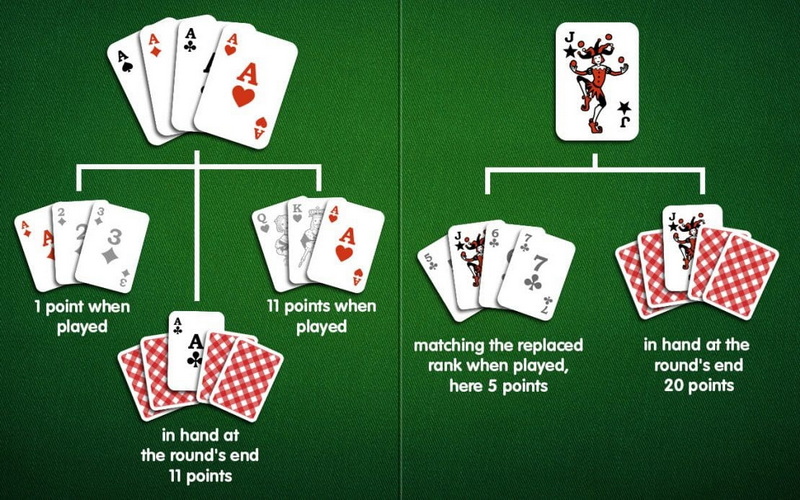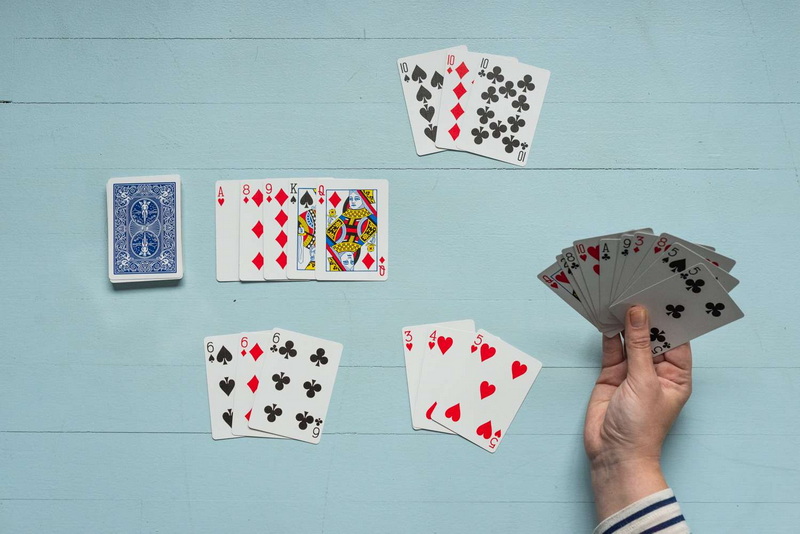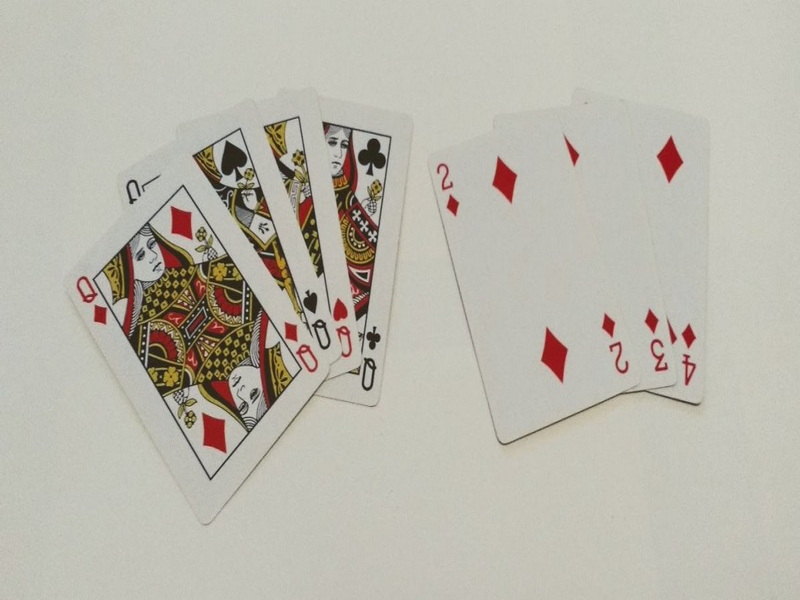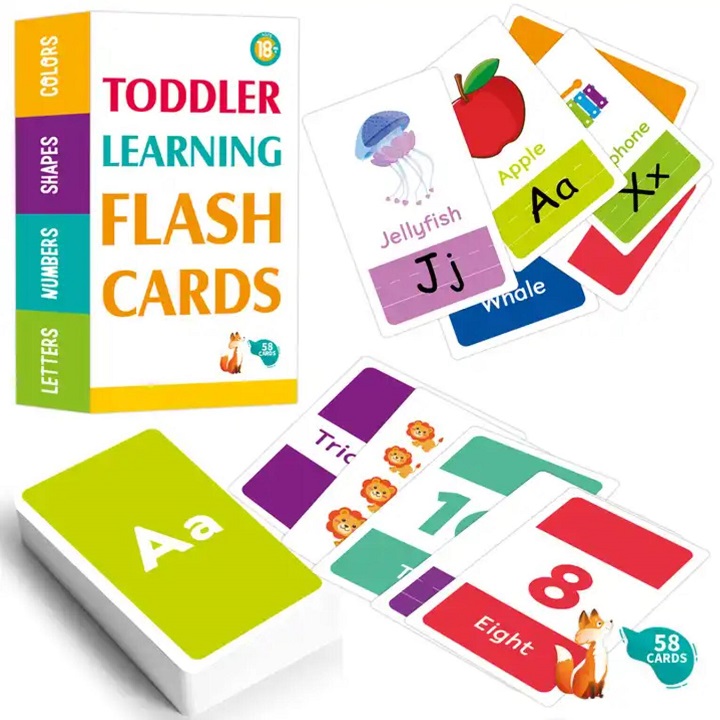Content Menu
● The Objective of Rummy
>> Understanding Sets and Sequences
● Basic Rules of Rummy
>> Setup
>> Gameplay
>> Winning the Game
● Scoring in Rummy
>> Penalties for Unmelded Cards
● Strategies for Winning at Rummy
>> Focus on Forming Pure Sequences
>> Keep Track of Discards
>> Use Jokers Wisely
>> Organize Your Hand
>> Be Cautious with High-Value Cards
>> Observe Opponents' Moves
>> Adapt Your Strategy Based on Your Hand
● Variations of Rummy
>> Gin Rummy
>> Indian Rummy
>> Canasta
>> 21 Card Rummy
>> Points Rummy
● Advanced Strategies for Winning at Rummy
>> Card Counting Techniques
>> Risk Management
>> Psychological Play
● Conclusion
● Frequently Asked Questions
>> 1. How many players can play Rummy?
>> 2. What is a pure sequence in Rummy?
>> 3. Can I play Rummy online?
>> 4. What happens if I go out before my opponents?
>> 5. What is ‘going rummy'?
● Citations:
Rummy is a popular card game that has captured the hearts of players around the world. Its blend of strategy, skill, and a bit of luck makes it an engaging pastime for both casual players and serious competitors. This article will guide you through the rules of Rummy, strategies for winning, and frequently asked questions to enhance your understanding of the game.

The Objective of Rummy
The primary objective of Rummy is to arrange your cards into valid sets and sequences. A player wins by forming a valid declaration, which requires at least two sequences, one of which must be a pure sequence.
Understanding Sets and Sequences
- Sets: A set consists of three or four cards of the same rank but different suits. For example, three Kings from different suits (King of Hearts, King of Spades, King of Diamonds) form a set.
- Sequences: A sequence consists of three or more consecutive cards of the same suit. For instance, 5♥, 6♥, and 7♥ form a sequence.
- Pure Sequence: A sequence that does not include any wild cards or jokers. For example, 3♠, 4♠, and 5♠ is a pure sequence.
- Impure Sequence: A sequence that includes at least one wild card or joker. For example, 8♦, 9♦, and Joker can be an impure sequence.
Basic Rules of Rummy
Setup
1. Number of Players: Rummy can be played with 2 to 6 players.
2. Decks Used: The game typically uses two standard decks of cards plus two jokers.
3. Dealing Cards: Each player is dealt 13 cards. The remaining cards form the stockpile placed face down on the table. The top card is turned face up to start the discard pile.
Gameplay
1. Turns: Players take turns in a clockwise direction.
2. Drawing Cards: On their turn, a player must draw one card from either the stockpile or the discard pile.
3. Melding Cards: After drawing, players can lay down sets or sequences on the table if they wish.
4. Discarding Cards: At the end of their turn, players must discard one card face up onto the discard pile.
5. Going Rummy: If a player manages to arrange all their cards into valid sets and sequences in one turn without discarding any cards at that moment, they declare "Rummy" and win the game immediately.
Winning the Game
To win Rummy:
- A player must form at least two sequences (one pure).
- The player must make a valid declaration by melding their cards correctly.
Scoring in Rummy
The scoring system in Rummy varies slightly depending on regional rules but generally follows these guidelines:
- Numbered cards (2-10) are worth their face value.
- Face cards (Jack, Queen, King) are worth 10 points each.
- Aces can be worth either 1 point or 11 points depending on their use in sequences.
- Wild cards or jokers typically carry higher penalties if left unmelded at the end.
Penalties for Unmelded Cards
If a player does not win and has unmelded cards left in their hand at the end of the game:
- Points from those unmelded cards are added to their score as penalties.
- The aim is to minimize these penalties while maximizing your chances of winning by melding your cards effectively.

Strategies for Winning at Rummy
Winning at Rummy requires not only an understanding of the rules but also strategic thinking. Here are some effective strategies:
Focus on Forming Pure Sequences
A pure sequence is mandatory for making a valid declaration in many versions of Rummy. Prioritize forming this as soon as possible to secure your chances of winning.
Keep Track of Discards
Pay attention to what your opponents are discarding as it gives insight into their potential melds and strategies. Avoid discarding cards that might help them complete their sets or sequences.
Use Jokers Wisely
Jokers can be powerful tools for completing impure sequences or sets. However, holding onto them too long can lead to penalties if you do not meld them before the game ends.
Organize Your Hand
Sort your hand by suits and potential melds to make it easier to identify which combinations you can create quickly.
Be Cautious with High-Value Cards
Try to get rid of high-point cards early in the game if you suspect you might lose; this minimizes potential penalties if another player wins before you do.
Observe Opponents' Moves
Keeping an eye on what your opponents are picking up or discarding can give you valuable information about their hands and strategies. This insight can help you make better decisions about which cards to keep or discard yourself.
Adapt Your Strategy Based on Your Hand
Flexibility is key in Rummy; adapt your strategy based on what you draw and what other players are doing. If you find that forming sets is proving difficult, focus on building sequences instead.
Variations of Rummy
Rummy has numerous variations that add unique twists to gameplay mechanics and rules:
Gin Rummy
This popular two-player variant involves players trying to form sets and runs with ten dealt cards each instead of thirteen. Players can "knock" when they believe they have lower unmatched points than their opponent.
Indian Rummy
Played with two decks and usually involves two jokers per deck; players need to form two sequences (one pure) with thirteen dealt cards.
Canasta
In this variant, players aim to create melds using seven-card hands while also utilizing wildcards strategically.
21 Card Rummy
As its name suggests, each player receives twenty-one cards in this version where players must form three pure sequences among other combinations.
Points Rummy
Players accumulate points over multiple rounds based on unmatched cards remaining after someone declares victory in each round; typically played until someone reaches a predetermined score limit.
Advanced Strategies for Winning at Rummy
While basic strategies provide a solid foundation for playing Rummy effectively, advanced techniques can significantly improve your chances against experienced opponents:
Card Counting Techniques
Understanding which cards have been played helps you make informed decisions about which ones to keep or discard:
- Keep track of high-value cards that have already been discarded.
- Note how many jokers are still available based on what has been picked up from both piles during gameplay.
Risk Management
Evaluate when it's best to take risks versus playing conservatively:
- If you're close to forming a winning hand but need just one specific card from another player's discard pile—consider whether taking that risk is worth it based on their previous picks.
- Conversely, if you're holding onto multiple high-point unmatched cards without prospects for melding them soon—consider dropping out early rather than accumulating penalties later on if someone else declares first!
Psychological Play
Rummy isn't just about numbers; it's also about reading your opponents:
- Try bluffing by discarding certain types of cards that might mislead others into thinking you're pursuing different melds than you actually are.
- Observe body language cues—players may reveal hints about their hands through non-verbal signals when they draw or discard certain cards!
Conclusion
Rummy is not just a game of luck; it requires strategic thinking and careful planning to master fully. Understanding its rules and practicing regularly will enhance your skills over time. Whether playing casually with friends or competitively online, mastering Rummy can lead to hours of fun and engagement.

Frequently Asked Questions
1. How many players can play Rummy?
Rummy can be played by 2 to 6 players.
2. What is a pure sequence in Rummy?
A pure sequence consists of three or more consecutive cards of the same suit without using any wild cards or jokers.
3. Can I play Rummy online?
Yes, there are many online platforms where you can play various versions of Rummy against other players globally.
4. What happens if I go out before my opponents?
If you manage to meld all your cards before others do, you win immediately and score based on opponents' remaining unmelded card values.
5. What is ‘going rummy'?
Going rummy means laying down all your cards in valid combinations without discarding any card during that turn; it usually doubles your score for that round.
Citations:
[1] https://artofcards.in/blogs/post/rummy-rules-your-guide-to-becoming-a-master-of-the-game
[2] https://www.reddit.com/user/Beginning-Cricket341/comments/wgms0w/the_secret_to_win_rummy_game_winning_strategy/
[3] https://www.getmega.com/rummy/learn/rummy-variants/
[4] https://www.mplgames.com/blog/rummy/
[5] https://www.rubl.com/rules/gin-rummy-tutorial.html
[6] https://firstgames.in/rummy-games/types-of-rummy
[7] https://www.dummies.com/article/rummy-understanding-the-rules-and-starting-a-game-193770
[8] https://www.gamezy.com/card-games/rummy/tips-and-tricks/
[9] https://www.rummyprime.com/rummy-variations/
[10] https://www.youtube.com/watch?v=M_9aW1ZGgS4
































